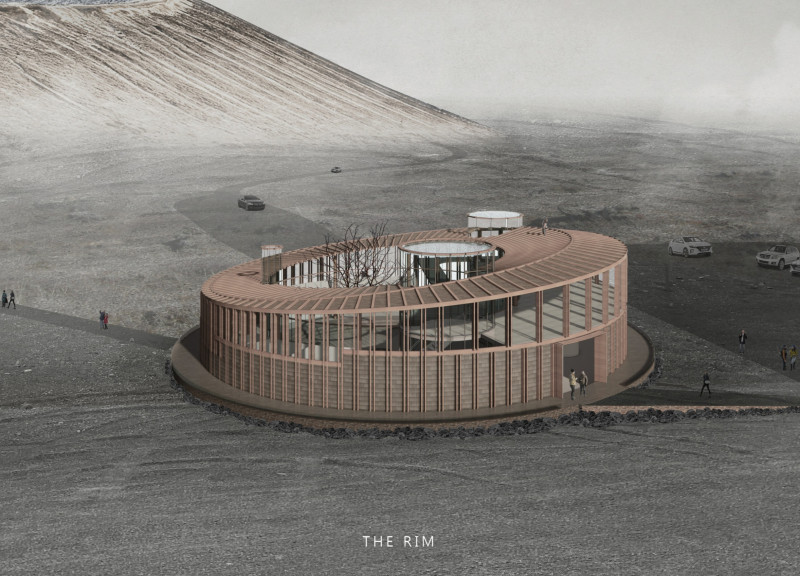5 key facts about this project
The RIM is located at the edge of Hverfjall in Iceland and serves as a meeting point for visitors interested in the natural beauty of Hjverfall. The design connects with the volcanic landscape in a meaningful way, reflecting the area's unique geography. The circular shape of the building echoes the nearby crater, creating an architectural response that encourages interaction between people and their surroundings.
Design Concept
The circular layout of The RIM not only offers an inviting appearance but also facilitates movement within and around the building. Central to the design is an inner void that allows natural light to fill the space, enhancing the atmosphere inside. This openness creates a sense of connection to the landscape just outside the walls. It invites visitors to pause and reflect while engaging with nature.
Spatial Layout
The ground floor contains an exhibition space that leads visitors toward existing hiking trails. This setup encourages exploration and interaction with the peaceful landscape. The flexible design allows for different configurations and events, adapting to the needs of the visitors. On the first floor, a café and coffee roastery provide impressive views of Hjverfall, transforming the natural feature into a point of interest for guests to enjoy.
Materiality
Materials used in The RIM reflect local culture and a commitment to sustainability. The facade consists of tiles made from repurposed local coffee grounds, combined with bio-binders, minerals, and plant-based resin. This choice gives the exterior a unique look while being lighter and easier to maintain compared to traditional materials. A gabion toe wall filled with local basalt effectively ties the building to the landscape, enhancing its sense of place.
Unique Features
The rooftop observatory stands out as an important feature, designed for use at night and delivering extensive views of the surrounding area. Visitors can take in the scenery from a fresh perspective, deepening their connection to the volcanic landscape. The careful attention to both form and function within the design creates a welcoming space that encourages people to experience and appreciate the natural beauty of Iceland.






















































